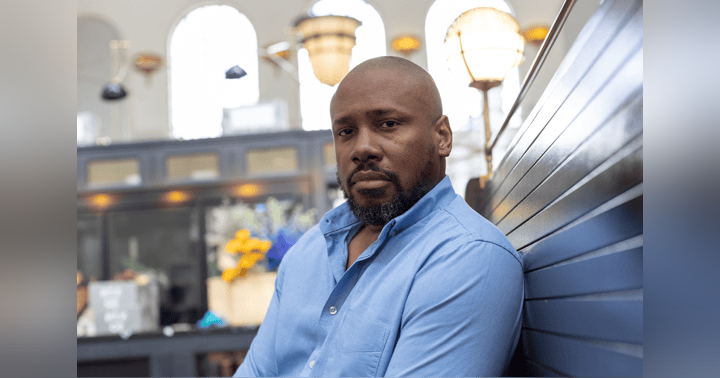
The widespread stigma associated with mental illness and the vital need for increased mental health awareness are discussed in depth in this piece. In this session, we will look into disturbing data, offer personal insights, and offer practical ways to encourage honest, empathetic dialogue. Our society may become more accepting and inclusive if we work to increase awareness and promote people to seek help when they need it. I explored these topics at length in my most recent podcast episode, "You Matter: Mental Health Reflections from Rich Bennett," which is available on the Conversations with Rich Bennett podcast. This article builds on the ideas we covered in that episode. For more in-depth analysis and anecdotes, I highly recommend listening to the full episode.
Introduction: The Importance of Mental Health Awareness
Mental health is an integral part of our overall well-being. It affects how we think, feel, and act. It influences our ability to cope with stress, relate to others, and make healthy choices. Just like physical health, mental health requires attention and care. Yet, too often, it's overlooked or stigmatized. Mental health awareness is about recognizing the importance of mental well-being and understanding that mental illnesses are real, treatable conditions. It involves educating ourselves and others, promoting open conversations, and challenging the negative attitudes that prevent people from seeking help.
Understanding Mental Health Awareness Month
Mental Health Awareness Month, observed every May, serves as a dedicated time to raise awareness, reduce stigma, and advocate for policies that support mental health. It provides a platform for individuals, organizations, and communities to come together and share stories, resources, and strategies for promoting mental wellness. The origins of Mental Health Awareness Month can be traced back to 1949, when Mental Health America (MHA) first established the observance. Since then, it has grown into a global movement, inspiring countless initiatives aimed at improving mental health outcomes. During this month, various activities take place, including educational campaigns, community events, and fundraising efforts. The goal is to create a more informed and supportive environment where everyone feels comfortable talking about mental health and seeking help when needed. It's a time to remember that mental health is just as important as physical health, and that seeking support is a sign of strength, not weakness.
The Stigma Surrounding Mental Illness: A Pervasive Problem
Stigma is a major barrier to mental health care. It refers to the negative attitudes, beliefs, and discriminatory behaviors directed towards individuals with mental illnesses. This stigma can manifest in various forms, including social stigma (public prejudice), self-stigma (internalized negative beliefs), and structural stigma (institutional policies and practices that disadvantage people with mental illnesses). The consequences of stigma are profound. It can lead to feelings of shame, isolation, and hopelessness. People may avoid seeking help for fear of judgment, discrimination, or rejection. This delay in treatment can worsen mental health conditions and negatively impact other aspects of life, such as relationships, employment, and education. Breaking the stigma requires a multi-faceted approach. We need to challenge negative stereotypes, promote accurate information, and create opportunities for meaningful interactions between people with and without mental illnesses. By fostering empathy and understanding, we can create a more inclusive and accepting society where everyone feels valued and supported.
Alarming Mental Health Statistics in the U.S.
The statistics surrounding mental health in the U.S. paint a concerning picture. According to the National Institute of Mental Health (NIMH), nearly one in five U.S. adults experience mental illness each year. That's over 50 million people struggling with conditions like depression, anxiety, bipolar disorder, and schizophrenia. Among young people, the numbers are even more alarming. Suicide is a leading cause of death for individuals aged 10-24. The COVID-19 pandemic has further exacerbated mental health challenges, with increased rates of anxiety, depression, and substance use. These statistics underscore the urgent need for greater awareness, access to care, and effective prevention strategies. We must prioritize mental health as a public health issue and invest in resources that promote early intervention, treatment, and recovery. Ignoring these numbers will only lead to greater suffering and societal costs. We can and must do better to support the mental well-being of all Americans.
Personal Reflections: Rich's Journey and Insights
As many of you know, I've always been passionate about creating a platform for open and honest conversations. This passion stems, in part, from my own personal experiences. While I haven't publicly detailed specific mental health struggles, I've witnessed firsthand the impact of mental illness on loved ones. These experiences have taught me the importance of empathy, understanding, and the power of connection. Seeing the challenges they faced, the stigma they endured, and the strength they demonstrated has fueled my commitment to advocating for mental health awareness. In my own journey, I've learned that vulnerability is not a weakness but a strength. Sharing our stories can break down barriers, inspire hope, and create a sense of community. It's okay to not be okay, and it's okay to ask for help. I want to use my platform to encourage others to do the same, to know that they are not alone, and that support is always available. The latest podcast episode, "You Matter: Mental Health Reflections from Rich Bennett" delves deeper into these perspectives.
Guest Spotlights: Sharing Mental Health Journeys
Over the course of Conversations with Rich Bennett, I've had the privilege of speaking with many incredible individuals who have bravely shared their mental health journeys. These stories are powerful reminders of the resilience of the human spirit and the importance of seeking support. Let's take a moment to highlight a few of these inspiring guests. Laura Renner spoke about the importance of self-care and setting boundaries in her professional and personal life to avoid burnout. Her insights on prioritizing mental well-being were incredibly valuable. Justine Rhodes, host of the "Mentally A Badass" podcast, shared her experiences with anxiety and depression, emphasizing the importance of self-acceptance and challenging negative self-talk. Her candidness and vulnerability were truly inspiring. Eric Darosa, a survivor and thriver, discussed his journey of overcoming trauma and building a life filled with purpose and meaning. His story is a testament to the power of resilience and the importance of seeking professional help when needed. These are just a few examples of the many courageous individuals who have used their voices to raise awareness and inspire hope. Their stories remind us that we are not alone and that recovery is possible.
How to Support Others: Empathy, Education, and Outreach
Supporting someone struggling with their mental health can make a world of difference. It starts with empathy – putting yourself in their shoes and trying to understand their experience without judgment. Listen actively, offer a non-judgmental space for them to share their feelings, and validate their emotions. Education is also key. Learn about different mental health conditions, their symptoms, and available treatments. This knowledge will help you better understand what your loved one is going through and how you can best support them. Outreach is another important aspect of support. Encourage your loved one to seek professional help if they are struggling. Offer to help them find a therapist, psychiatrist, or support group. Remind them that seeking help is a sign of strength, not weakness. Be patient and understanding throughout their journey. Recovery is not always linear, and there may be setbacks along the way. Continue to offer your support and encouragement, and celebrate their progress, no matter how small. Remember that taking care of your own mental health is also essential when supporting others. Set boundaries, practice self-care, and seek support for yourself if needed.
Local Maryland Mental Health Resources
For those in the Maryland area, there are numerous local resources available to support mental health. Maryland Wellness offers a variety of programs and services, including counseling, support groups, and educational workshops. Ashley Behavioral Health and Wellness provides comprehensive treatment for mental health and substance use disorders. The Harford County Health Department offers mental health services to residents of Harford County, including crisis intervention, therapy, and community outreach programs. These are just a few examples of the many local organizations dedicated to promoting mental health and providing support to those in need. I encourage you to explore these resources and connect with the services that are right for you. Remember, seeking help is a sign of strength, and there are people who care and want to support you.
National Crisis Support: Hotlines and Organizations
In times of crisis, it's crucial to know where to turn for immediate support. The 988 Suicide & Crisis Lifeline is available 24/7 by calling or texting 988. This lifeline connects you to a trained crisis counselor who can provide confidential support and resources. Mental Health America (MHA) and the National Alliance on Mental Illness (NAMI) are two leading national organizations dedicated to promoting mental health and providing support to individuals and families affected by mental illness. MHA offers a range of resources, including information on mental health conditions, advocacy tools, and online screening tools. NAMI provides support groups, educational programs, and advocacy initiatives at the local, state, and national levels. These organizations are invaluable resources for anyone seeking information, support, or advocacy related to mental health. Don't hesitate to reach out to them in times of need.
Breaking the Stigma: Fostering Open Conversations
The key to breaking the stigma surrounding mental illness is to foster open and honest conversations. This starts with creating safe spaces where people feel comfortable sharing their experiences without fear of judgment. Encourage open dialogue in your family, workplace, and community. Share your own stories, listen to others with empathy, and challenge negative stereotypes. Educate yourself and others about mental health conditions, their causes, and available treatments. Use accurate and respectful language when talking about mental illness. Avoid using derogatory terms or making light of mental health struggles. Support media representations that portray mental illness accurately and sensitively. Advocate for policies that promote mental health awareness, access to care, and non-discrimination. By working together, we can create a more inclusive and accepting society where everyone feels valued and supported, regardless of their mental health status.
Concluding Thoughts: Hope, Healing, and the Power of Openness
Mental health is a journey, not a destination. There will be ups and downs, challenges and triumphs. But through it all, it's important to remember that hope, healing, and recovery are always possible. By breaking the stigma surrounding mental illness and fostering open conversations, we can create a more supportive and compassionate society where everyone feels empowered to seek help and live their best lives. Remember, you are not alone. There are people who care about you and want to support you. Don't hesitate to reach out for help when you need it. Your mental health matters, and you deserve to live a life filled with joy, purpose, and well-being. This blog post is a continuation of the conversation I started in the "You Matter: Mental Health Reflections from Rich Bennett" episode. I hope that both this post and the episode inspire you to prioritize your mental health and to reach out for support when you need it. Together, we can break the stigma and create a world where mental health is valued and everyone has the opportunity to thrive.










